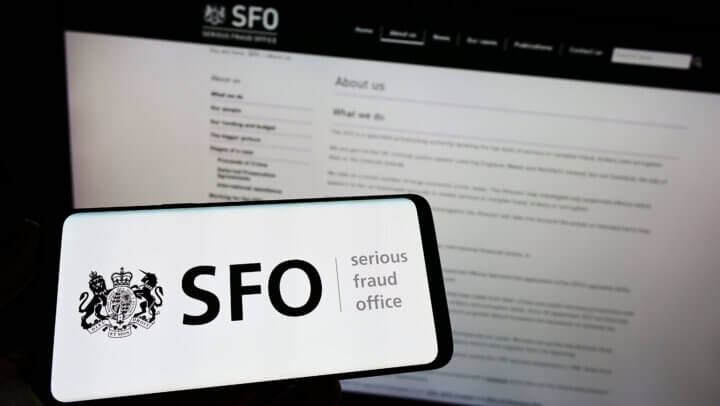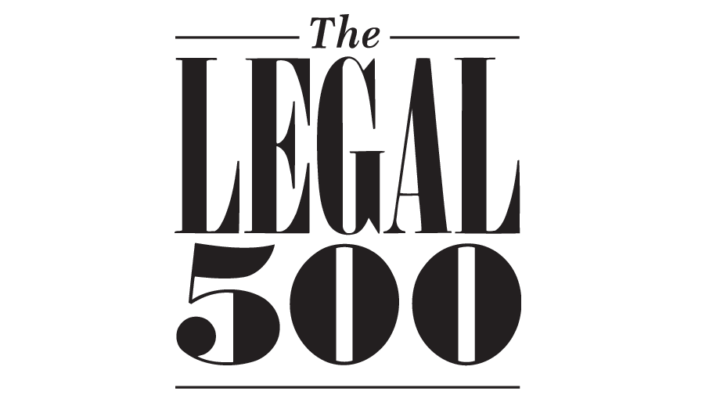The High Court has heard – and rejected – the first challenge under the UK’s post-Brexit sanctions framework. BCL partner, John Binns explains what the judgment tell us about how others’ designations could now be scrutinised.
An important first
Since its exit from the EU, the UK has had its own framework for making sanctions regulations, and for designated persons (DPs) to challenge ministers’ decisions in court. In a recent judgment, Jay J has rejected a claim by LLC Synesis, a company designated under the Belarus sanctions regime, and made some important observations about how such regimes work.
With the number of DPs and the effect of sanctions ever-increasing, thanks largely to Russia sanctions, the details of the judgment are rightly attracting attention. In at least one important respect – the interaction of such reviews with the European Convention on Human Rights (ECHR), which ministers’ decisions must consider under section 6 of the Human Rights Act 1998 (HRA) – it seems to sends a distinctly alarming signal.
The background to the case
By way of background, Synesis was and is a Belarusian technology company, co-founded by an Alexander Shatrov, and part-owned (until just after its designation) by Alexei Aleksin, said to be an ally of Belarus’ President Lukashenko. Through a subsidiary, LLC 24×7 Panoptes, it provided Belarus’ Republican System for Monitoring Public Safety (RSMPS) with a facial recognition system, Kipod Technology, which is designed to search for specific (for instance, missing) individuals.
In terms of the legal framework, the UK’s Sanctions and Anti-Money Laundering Act 2018 (SAMLA) empowers ministers to make sanctions regulations, which in turn enable the designation of individuals and entities they have ‘reasonable grounds to suspect’ fit certain criteria (and, as originally enacted, if that designation was ‘appropriate’), making them an ‘involved person’, and triggering prohibitions that effectively freeze any assets of the DP within their jurisdiction. SAMLA also provides a two-stage challenge process for DPs, starting with a request to the minister to review the designation, and then a ‘court review’ (not technically a ‘judicial review’, but applying the same principles) of that decision.
The Belarus sanctions
The Belarus (Sanctions) (EU Exit) Regulations 2019 are one of a set of statutory instruments made to ensure that, following Brexit and the Implementation Period (IP) that followed, the UK could essentially duplicate EU sanctions it had been bound to follow immediately beforehand. (Russia sanctions were, originally at least, in the same category.)
Stated to be for the purpose of ‘encouraging’ the Belarus government to (among other things) refrain from repressing civil society and to respect human rights, the Regulations’ criteria include anyone who ‘is or has been’ involved in (among other things) ‘the supply to Belarus of… technology which could contribute’ to human rights abuse and/or or to ‘the repression of civil society or democratic opposition’.
As was then required, a report to Parliament explained the rationale for the Regulations, citing their intention ‘to apply pressure in order that the Government of Belarus changes its behaviour, and to send a strong message of disapproval for human rights abuses or disregard for the rule of law’.
Synesis’ designation
Following hotly disputed election results on 9 August 2020, the EU imposed various sanctions targeting the Lukashenko regime, and on 17 December 2020 it designated Synesis. When the IP ended a fortnight later, at 11 pm on 31 December 2020, this was replaced in the UK by a designation by the Foreign Secretary (then Dominic Raab), with a required Statement of Reasons (SOR) that cited Synesis’ supply of Kipod to the RSMPS, and said that the system ‘enhances the capacity of the Lukashenko regime to carry out human rights violations and repress civil society’.
Synesis obtained from the Foreign, Commonwealth and Development Office (FCDO) a Sanctions Designation Form (SDF) and an SDF Evidence pack (SDFE), which purported to justify the designation, and applied under SAMLA for a ministerial review. Importantly, by the time the Foreign Secretary (then Liz Truss) made her decision, the RSMPS had replaced Panoptes with a state-owned provider, and the Economic Crime (Transparency and Enforcement) Act 2022 (EC(T&E)A) had removed the requirement for designations to be ‘appropriate’.
An amended SOR, SDF and SDFE acknowledged both Panoptes’ role, and the fact that the relationship was now historic, but left the designation in place. Unfortunately for Synesis, the SOR now also referred to claims (from what the FCDO said to be reliable sources, including an organisation called Bypol) that Kipod had in fact been used in practice to find a civil society activist, Nikolay Dedok, whom it had recognised in a Minsk subway and had later been arrested and tortured.
The basis for the challenge
Synesis did not deny that it had (through Panoptes) supplied Kipod to the RSMPS, nor that it could (in theory) be used to find activists like Dedok. It denied however that it had been so used, and claimed that the Foreign Secretary had acted irrationally in deciding that there were ‘reasonable grounds to suspect’ that it fit the criteria, and was a disproportionate interference with its ECHR rights.
The evidence available to the FCDO at that time included statements to the effect that Kipod could not be used for mass surveillance, and that it had not been used in large numbers, nor in proceedings against civilians. In an interview after the EU designation, Shatrov had responded to claims about the use of Kipod by saying that he was ‘not interested in what I cannot influence’. Synesis also cast doubt on the idea that Dedok’s presence in the Minsk subway could have led to his arrest some 76.2 km away.
During the court review, Synesis adduced further evidence (including some aimed at undermining the reliability of Bypol), and stressed the point that it had no knowledge of the use made by the RSMPS of Kipod. The only interaction between the RSMPS and Synesis, its counsel said, was the payment of a monthly subscription.
Some important issues
In the course of reaching his decision, Jay J covered a number of issues that are broadly relevant to regulations made under SAMLA. The first was the relevance of EU law, which Synesis said was relevant to the interpretation of SAMLA and the Regulations, while the Foreign Secretary said was not. Jay J agreed that it was not, but also said that in this case, it would have made no difference.
The second was the effect of the EC(T&E)A amendment to SAMLA, which removed the requirement for designations to be ‘appropriate’. Again, Jay J suggested that it made no difference in this case, as the Foreign Secretary had considered ‘HRA compliance and proportionality’ in making her decision. More generally, he said that ‘even under the [post-amendment] regime, the [minister] clearly has a discretion to designate, and the inquiry does not notionally cease as soon as he has reasonable grounds to suspect’ that a criterion is met.
The test to apply
The third issue, and the one on which Jay J focused most attention, was the nature of the requirement (common to all sanctions regulations) that the minister has ‘reasonable grounds to suspect’ that the DP was an ‘involved person’ (or associated with one). Endorsing the approach of the Court of Appeal in a case about terror suspects (MB, in 2006), he said that the minister’s task was to make a rational decision based on a ‘matrix of alleged facts’, and went on to deny that this amounted to any ‘standard of proof’, in contrast to courts’ findings of fact in civil and criminal cases.
The fourth issue was the court’s role under SAMLA in reviewing the minister’s decision. Jay J stressed that it was not to place itself in the minister’s shoes, but simply to assess whether the decision was rational and within the relevant legal powers. His approach departed from MB to this extent, which he noted concerned HRA points and was hard to reconcile with more recent authority, including Begum (2021) and QX (2022).
The judge’s decision
With all this in mind, it is perhaps unsurprising that Jay J decided not to overturn the decision of the Foreign Secretary that Synesis was an ‘involved person’. Noting the breadth of the criterion applied (‘is or has been’ involved… in the supply of technology which ‘could’ contribute’ to repression and abuse), he dismissed as simply irrelevant Synesis’ points that its supply had now stopped (rendering the designation pointless), and that the technology had not in fact contributed to any such repression or abuse (casting doubt on the FCDO’s sources that claimed otherwise).
What is more surprising is the way Jay J dealt (or did not deal) with Synesis’ HRA argument. Barely articulated in the judgment, the issue is that any interference in Synesis’ ECHR rights can only be justified if it has a rational connection with the purpose of the Regulations. Conceivably, freezing the assets of a current provider of (for the sake of argument) repression-enabling technology might serve the purposes of Regulations aimed at tackling repression. But what of a former provider?
A missed opportunity
Jay J did not engage with the point, saying briskly that as Synesis’ first argument (as discussed so far) had failed, the HRA argument failed as well. But this was after pages of labouring his duty not to stand in the minister’s shoes in deciding there were ‘reasonable grounds to suspect’ Synesis fit the criteria, noting that there was ‘a discretion to designate, and [that] the inquiry does not notionally cease as soon as he has reasonable grounds to suspect’. An examination of whether that discretion had been exercised compatibly with Synesis’ ECHR rights, as the HRA requires, would have been instructive (and surely necessary, noting that MB appears still to be good law in this respect).
It is possible (in what seems a recurring theme of the judgement) that this would have made no difference in this case. Jay J made a number of observations that seemed to hint as much: that Aleksin (Lukashenko’s reported ally) had co-owned Synesis; that it would be naïve to think that Kipod would only be used benevolently; that it seemed perfectly possible that RSMPS had used it to spot Dedok in Minsk and then follow him to his place of arrest; that Synesis’ US counsel’s points about the sources relied on for this part of the story (including Dedok’s torture) were ‘far-fetched’.
Some difficult questions
The unspoken subtext, perhaps, was that Synesis did bear some culpability for RSMPS’ use of Kipod, and that this was relevant to the question of whether its ECHR rights had been breached. But this is a critical issue for sanctions designations generally, which are meant (in theory, and explicitly in SAMLA) to be instrumental rather than punitive. It could be said of course that sanctioning former providers of repression technology would send a message to other private providers, but the difference between this and a punitive measure is hard to discern (and, insofar as the message seems to be that sanctions continue whether you continue providing the technology or not, arguably counter-productive).
A few questions have been left frustratingly in the air. In the context of this case: was Aleksin’s role (thought to be) important? (If so, does it matter that Shatrov had, by the time of the reviews, taken over as owner?) What assets were frozen? Why not designate Panoptes, the actual provider, rather than its parent? Why was it replaced, and could this have happened sooner? More generally: will other courts follow Jay J’s steer in reviewing the minister’s decision on whether a DP fits the criteria? And most importantly: following the EC(T&E)A amendment (removing the word ‘appropriate’), and assuming that the HRA continues to have at least some role, will courts in future cases – including, perhaps significantly, individual rather than corporate DPs – do a better job at assessing the question of proportionality?
Some points about process
Meanwhile, there are some procedural aspects of the SAMLA framework that the case reveals as unsatisfactory. The FCDO’s provision to the DP of the SDF and SDFE pack, backing up the original SOR, is clearly key to the process of ministerial review. But the fact that this ended with a revised SOR, and a new SDF and SDFE pack, citing Bypol and Dedok for the first time, looks rather like shifting goalposts.
SAMLA allows a DP to request a further ministerial review if there is a ‘significant matter which has not previously been considered by the minister’. The courts, as Jay J made clear, will be reviewing the minister’s decision and not making a fresh one, so should not be presented with fresh evidence. But this does rather look as if, in connection with new points about matters considered for the first time in the ministerial review, the DP has no right to be heard.
The Russia context
The context of all this, of course, is the vastly increased number and impact of sanctions designations, particularly in connection with Belarus’ neighbour and ally, Russia. The length of time it has taken Synesis’ case, from designation in December 2020 to court review in March 2023, may dampen expectations of those keen to know how the equivalent provisions of the Russia sanctions will be interpreted. But with even broader criteria, and increasing relevance (for instance in the provision of trust and professional services), the issues for DPs under that regime are increasingly acute.
What is certainly clear is that UK sanctions lawyers’ hopes of a better standard of court review in SAMLA, as compared to the EU system, must be tempered with some realism. High Court judges should certainly be expected to follow the steer of SAMLA and recent authority on the deference to be granted to ministers in their decision making. But it seems they may need some reminding of the crucial importance of judicial scrutiny where measures have a real impact on ECHR rights.




